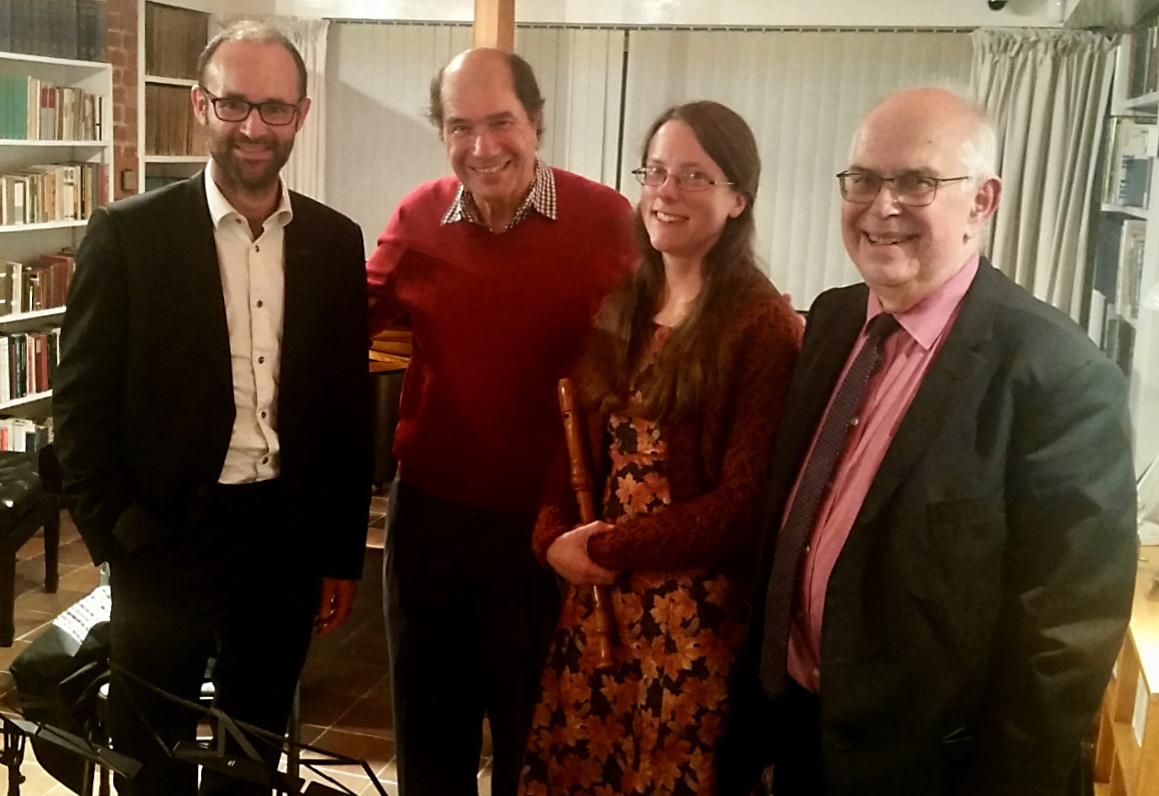Lennox Berkeley’s recorder pieces premiered in Aldeburgh
Composer David Matthews, biographer of Britten, reviews Lennox Berkeley’s recorder premieres at the Red House in 2020.
The concert, in Britten’s Library at the Red House, featured the distinguished recorder player John Turner, his recorder pupil Laura Robinson, and the pianist and composer Nathan Williamson, who is also artistic director of the festival. As with all John Turner’s concerts, the programme was typically inventive.
It began with three brief pieces for two treble recorders by Lennox Berkeley: Moderato (1938), Minuet (c.1924, discovered only last year), and Allegro (1938). The first two were receiving their premières, and Allegro was published in 1955 in a version edited by Britten (a skilled recorder player himself). All three pieces were unpretentiously charming and played with superb artistry by Turner and Robinson.
Slightly less charming was a virtually unknown two-recorder piece by Stravinsky, an arrangement of ‘Ann’s Lullaby’ from The Rake’s Progress, written for an amateur recorder player friend in Los Angeles. There were a number of awkward high notes, and the piece would probably be better suited to two flutes, an alternative suggested by Stravinsky. Peter Dickinson’s semi-improvised Elegiac Canons, a new arrangement for two recorders of part of a 1977 piece for larger forces in memory of David Munrow, was extraordinary but highly effective. Elis Pekhonen’s Suffolk Bells for descant recorders was a striking study in neo-mediaevalism, and the concert ended with an exuberant Handel Sonata for two recorders and continuo (played on the Library piano by Nathan Williamson), which was a Turner discovery put together by him and Christopher Hogwood from two incomplete manuscripts in Cambridge and Washington.

Williamson also played Michael Berkeley’s Haiku, a set of eight short pieces with bird titles. Wisely avoiding competition with Messiaen, Berkeley intended to depict the birds’ movement, rather than their sounds, which he did very precisely, with a wheeling ‘Kite’ and a busy ‘Goldfinches and Blue Tits’. Alwyn’s contribution to the concert included Chaconne for Tom (1983) a somewhat wooden version of ‘Happy Birthday’ for recorder and piano, his penultimate piece, which he had been reluctant to write; but also a far better piano Prelude No 5 in D from his set of twelve. Alwyn’s fine piano music deserves to be better known.
There was an encore, a delightful little piece for two treble recorders by Imogen Holst, who used to play recorder music at the Aldeburgh Music Club with Britten and Pears, but this piece dates from her Dartington days.